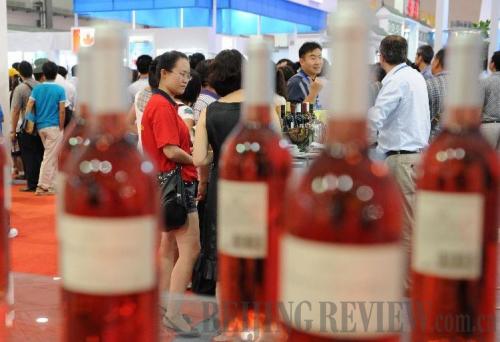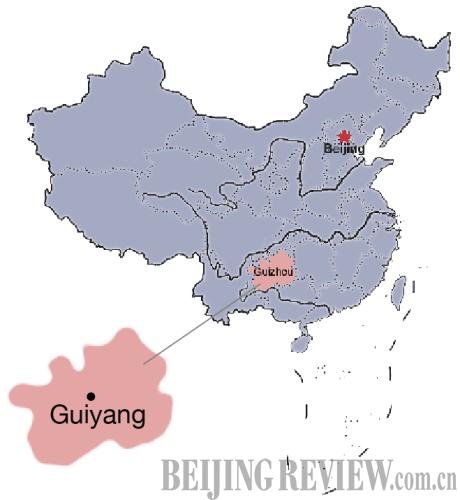|
 |
|
INVIGORATING GUIZHOU: A total of 1,854 enterprises attend the 2011 China (Guizhou) International Alcoholic Beverages Expo held on August 18-20 in Guiyang, capital of Guizhou Province (XINHUA) |
Governor Zhao said Guizhou needs investment from large enterprises like Chinalco since the province faces the dual task of transforming its development model and accelerating economic growth.
Meanwhile, many coastal manufacturers are moving westward where lower land and labor costs ensure profits. Guizhou hopes to benefit from that relocation and receive the transferred industries, said Li Zhanshu, Secretary of Guizhou Provincial Committee of the Communist Party of China.
Moreover, Guizhou will offer favorable policies to investors, protect their interests and help address their problems, he said.
"We believe Guizhou will gain momentum from the movement of industry and embrace a significant economic boom," said Sun Guoqiang, Vice Governor of Guizhou Province.
Experts' advice
Researchers and economists were also present at the investment and trade fair to provide suggestions on the province's social and economic development.
Li Wei, President of the Development Research Center of the State Council, said it is necessary to allow markets to play a larger role in receiving industries that are moving from the east coastal region.
"GDP is not everything, and the province should avoid redundant construction and low-end industries," he said.
Guizhou's ecological environment has been well protected, with green vegetation covering most of the province. Li said Guizhou must attach greater importance to environmental protection, embark on a more sustainable path of development and forge ahead with recycling efforts.
"Otherwise, Guizhou and the entire nation will face severe resource shortages, which will become an acute bottleneck choking the country's economic development," he added.
Qian Meng, Deputy General Manager of State Development and Investment Corp., pointed out that Guizhou should strengthen its industries in the following three ways.
First, it must consolidate fragmented industries to achieve scale effect and tackle the problem of outdated technologies and equipment, low productivity and low comprehensive utilization.
Second, it must extend the mineral industrial chain, make a push into deep processing and produce goods with high added value.
Third, it must ensure the sustainability of resource development and avoid the excessive exploitation of mineral resources.
"Guizhou can learn from the experiences of Sichuan Province and Inner Mongolia Autonomous Region and build an industrial transfer demonstration zone," said Qian. "It is necessary to tighten efforts to improve local infrastructure and lay a solid foundation for the development of the demonstration zone."
While invigorating the economy, Guizhou must also promote education and poverty relief to improve people's livelihoods, he said.
"In recent years, Guizhou has made remarkable progress in education and poverty reduction," said Qian. "But pressures remain heavy for the province during the 12th Five-Year Plan (2011-15)."
It is imperative for the province to invest heavily in infrastructure construction, such as transportation networks and drinking water facilities, as well as education to translate its human resource advantages to economic benefits, said Qian.
Wei Houkai, Director of the Institute for Urban and Environmental Studies under the Chinese Academy of Social Sciences, said the key for Guizhou is to achieve leapfrog development of a green economy.
"The province should not follow the development model of some coastal regions—pollution first, treatment later," said Wei. "Instead, it must integrate economic development and ecological environment protection."
With a favorable climate and a stunning visual environment, Guizhou can easily become an international tourist destination and a major manufacturer of clean energy, chemicals, advanced equipment and pharmaceuticals, he said.

Facts About Guizhou (2010)
Area: 176,167 square km, 92.5 percent of which consists of mountains and hills
Population: 34.75 million
Per-capita GDP: 11,640 yuan ($1,805), the lowest among China's provincial-level economies
Per-capita net income of farmers: 3,400 yuan ($527), the second lowest in China
Per-capita disposable income of urban residents: 14,180 yuan ($2,198), the fifth lowest in China
(Source: Statistical Communiqué of Guizhou Province on the 2010 Regional Economic and Social Development) | 